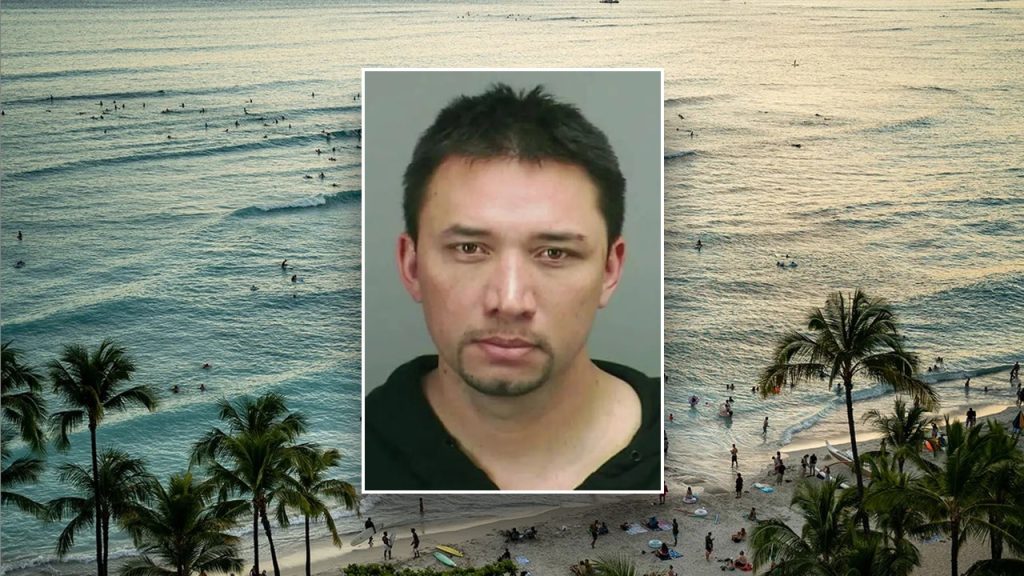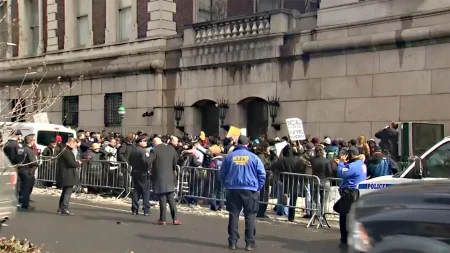Michael Miske, a prominent Hawaiian businessman, met an untimely end in federal custody on December 1st, succumbing to an opioid overdose. The Honolulu medical examiner attributed his death to the combined toxicity of fentanyl and para-fluorofentanyl, a synthetic opioid even more potent than fentanyl. While the death appears accidental, investigations remain ongoing, with a comprehensive autopsy report expected in the coming weeks. This unexpected demise occurred just months before his scheduled sentencing for a litany of crimes, including racketeering conspiracy and murder, casting a dark shadow over the impending legal proceedings.
Miske, who helmed a sprawling criminal enterprise known as the “Miske Enterprise,” was convicted on July 18th on 12 felony charges. His criminal activities, which spanned from the late 1990s until his arrest in July 2020, encompassed drug trafficking, money laundering, and ultimately, orchestrating the kidnapping and murder of 21-year-old Jonathan Fraser. The breadth and depth of his criminal operations painted a grim picture of a man who wielded power and influence to orchestrate a vast network of illicit activities, leaving a trail of destruction in its wake. His impending sentencing, originally slated for November but postponed to January 30th, promised a reckoning for his extensive criminal career. However, his sudden death has preempted the legal process, leaving a void in the pursuit of justice.
The circumstances surrounding Miske’s access to fentanyl and para-fluorofentanyl within the confines of the Honolulu Federal Detention Center remain shrouded in mystery. How a high-profile inmate, presumably under close surveillance, managed to obtain these deadly substances raises serious questions about security protocols and potential vulnerabilities within the prison system. The investigation into his death will undoubtedly delve into this critical aspect, seeking to understand how such a breach occurred and prevent similar incidents in the future. The implications of this incident extend beyond Miske’s individual case, potentially revealing systemic weaknesses that require immediate attention.
Central to Miske’s criminal saga is the tragic story of Jonathan Fraser, whose life was brutally cut short at the age of 21. Fraser, best friends with Miske’s late son, Caleb Miske, shared a passion for cars and racing. Their bond was tragically severed by a fatal car crash in November 2015 that claimed Caleb’s life. While police reports indicated Caleb was behind the wheel, Miske, consumed by grief and a thirst for vengeance, fixated on Fraser as the culprit. This misplaced blame fueled a dark obsession that ultimately culminated in Fraser’s abduction and murder, a chilling testament to the destructive power of unchecked grief and the lengths to which Miske was willing to go to exact retribution.
Miske’s conviction represented a significant victory for law enforcement, effectively dismantling his criminal empire and paving the way for the seizure of substantial assets. The government was poised to confiscate up to $28 million worth of property, including boats, houses, and artwork, representing the ill-gotten gains amassed through years of criminal activity. This forfeiture symbolizes a tangible blow to organized crime, stripping Miske of the fruits of his illicit endeavors and serving as a deterrent to others engaged in similar activities. The seizure of these assets underscores the commitment of law enforcement to disrupting criminal networks and holding perpetrators accountable for their actions.
While Miske’s death has brought a sudden end to his legal proceedings, it also leaves a lingering sense of unfinished business. The families of his victims, including the Fraser family, are now robbed of the opportunity to witness him face the full consequences of his actions in a court of law. His death has brought closure in one sense, but simultaneously opened a new wound, denying victims’ families the closure that a formal sentencing might have provided. The complex legacy of Michael Miske, a man driven by ambition, grief, and a profound disregard for the law, will continue to resonate in the Hawaiian community for years to come.










